Last week, a 2018 Yale Law Journal paper titled The Obsolescence of Advertising in the Information
Age reached the front page of Hacker News. I'd like to offer some commentary on it within the specific scope of freemium digital products: digitalcommons.law.yale.edu/cgi/viewconten… (1/X)
Age reached the front page of Hacker News. I'd like to offer some commentary on it within the specific scope of freemium digital products: digitalcommons.law.yale.edu/cgi/viewconten… (1/X)
2/ Broadly, the article posits that advertising is obsolete in the information age because access to the internet provides access to all relevant information needed to make purchasing decisions. 

3/ The informational value of advertising is important here because it is what provides advertising with 1st amendment protections. This positioning was achieved in the 70s primarily as a result of the influence of the Chicago school, a group of anti-trust scholars 

4/ Prior to this characterization, the FTC had filed anti-trust complaints against some of the US' largest advertisers, accusing them of manipulating consumer preferences in order to gain anti-competitive advantages 
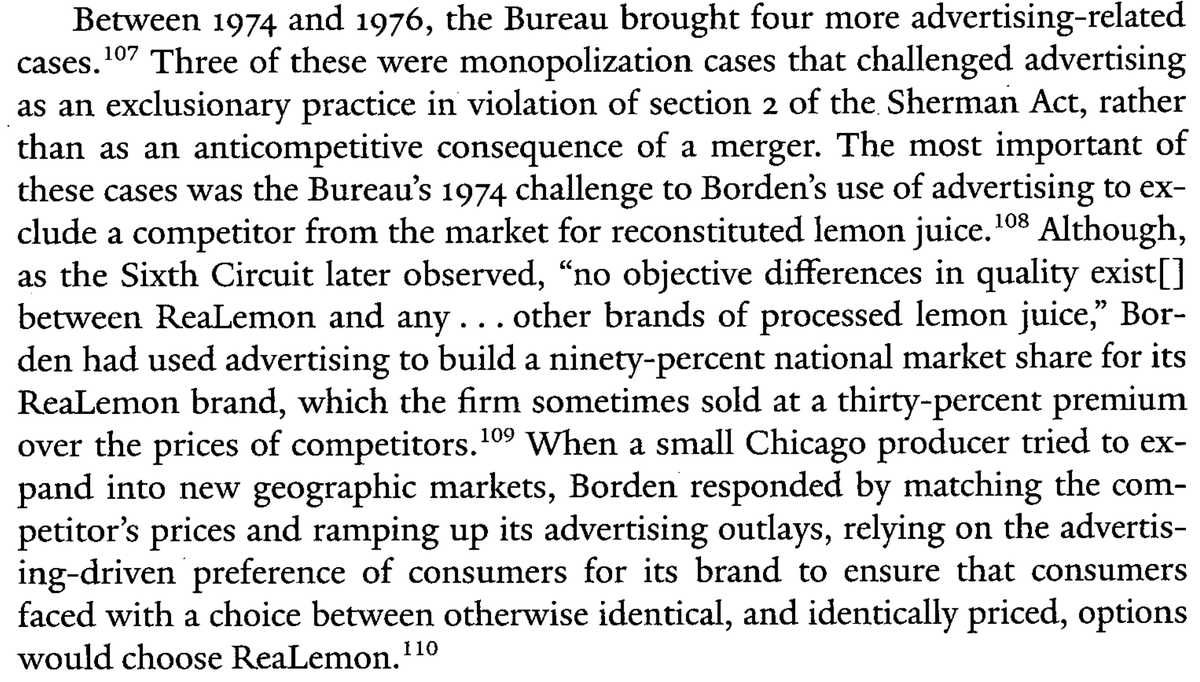
5/ As I discuss in this article, the FTC regulates advertising on the basis of truthfulness. When the value of advertising is deemed to be the information it conveys, the FTC seeks to enforce that the information transferred is factual mobiledevmemo.com/why-do-mobile-…
6/ Chicago school's defense of advertising proposed that it provides a complementary, parallel value proposition to a product. Essentially, the ad provides increased enjoyment when the product is purchased or consumed 
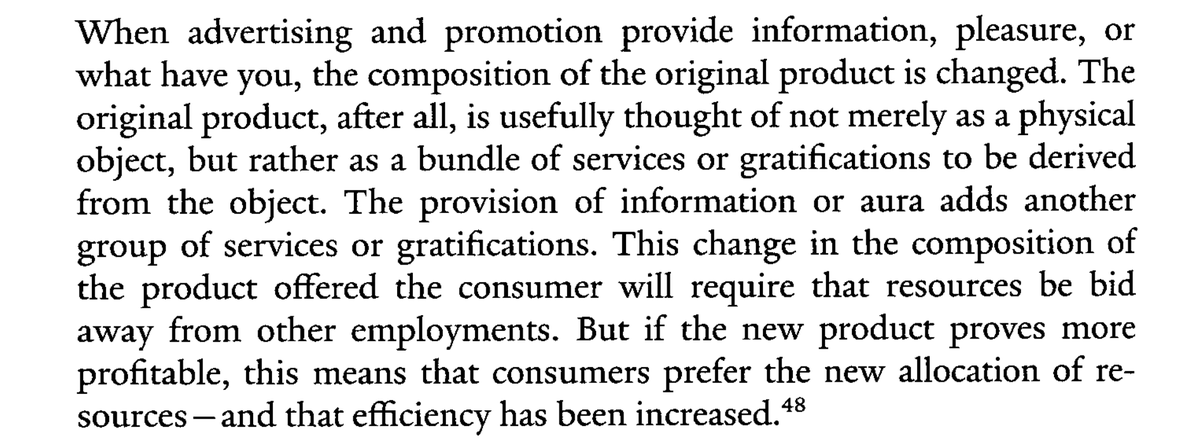
8/ The author of the paper argues that most ads don't actually relay any information, but the informational view of advertising persists because both advocates and critics of advertising are given very specific, objective conditions on which to assert the merits of their position
9/ The author contends that the informational value of advertising has become invalidated while the manipulative impact of advertising persists, and manipulation reduces innovation by suppressing competition. This should resuscitate anti-trust scrutiny 
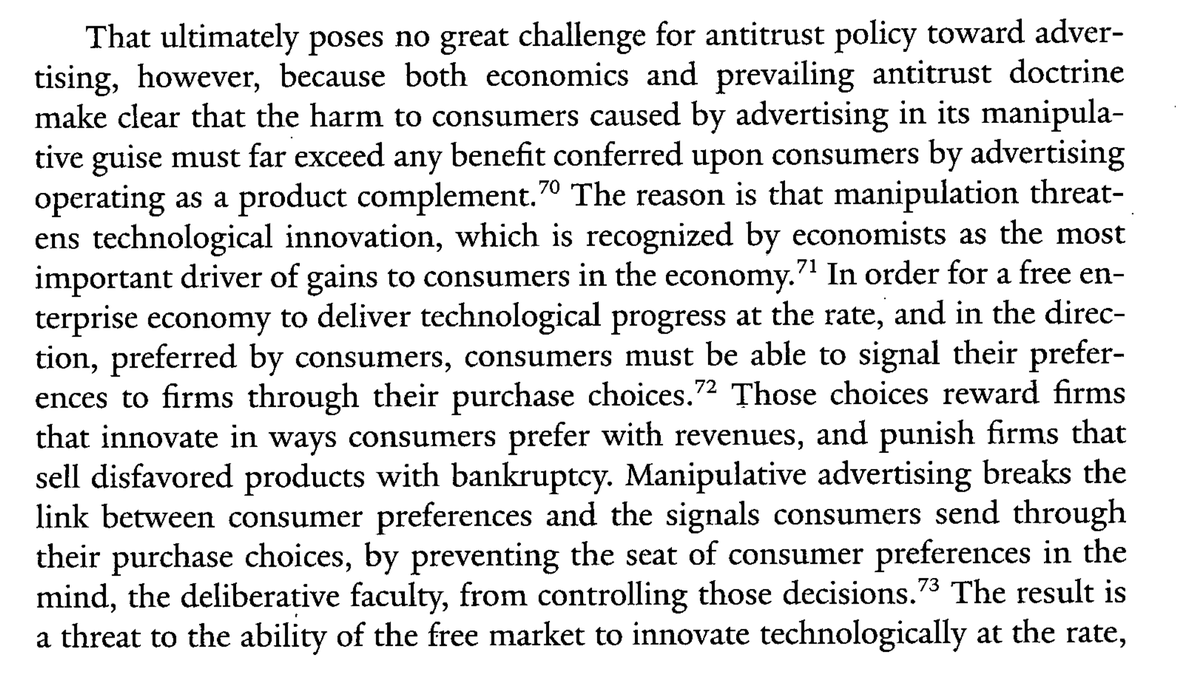
10/ The author makes the point that persuasive advertising breaks the link between consumer preferences and consumer purchases, rewarding firms not for building the best product but for being the best at advertising. 

11/ Most of the author's analysis seems directed at CPG products. The author repeatedly brings up the example of Santa drinking Coke, for instance 
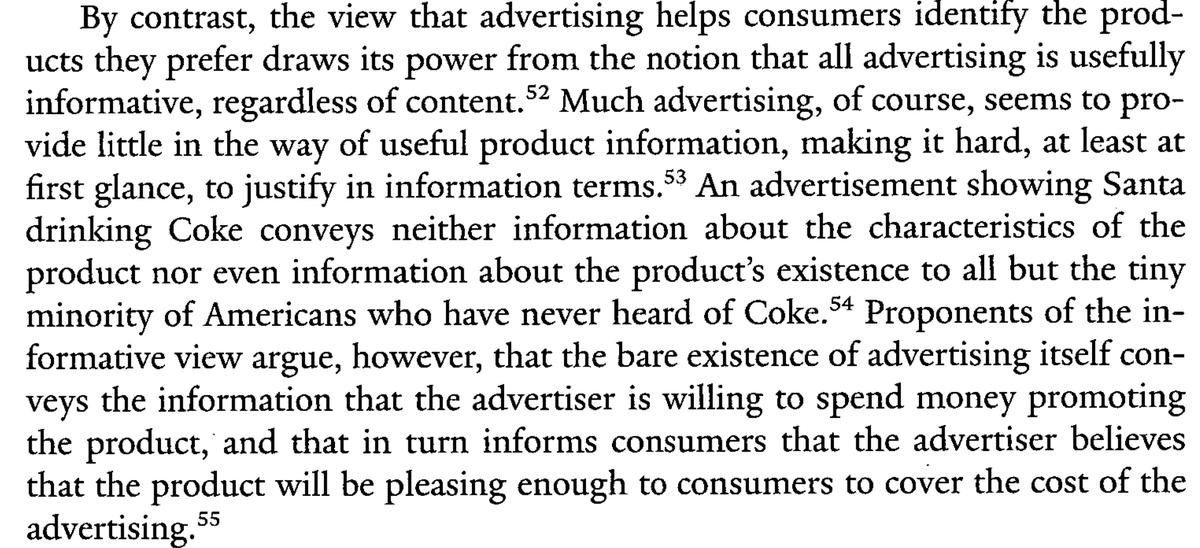
12/ The author ultimately reaches a fairly extreme conclusion: advertising should be banned because it serves as an anti-competitive exclusionary force that provides the advertiser with an advantage while not improving the product or benefiting the consumer 
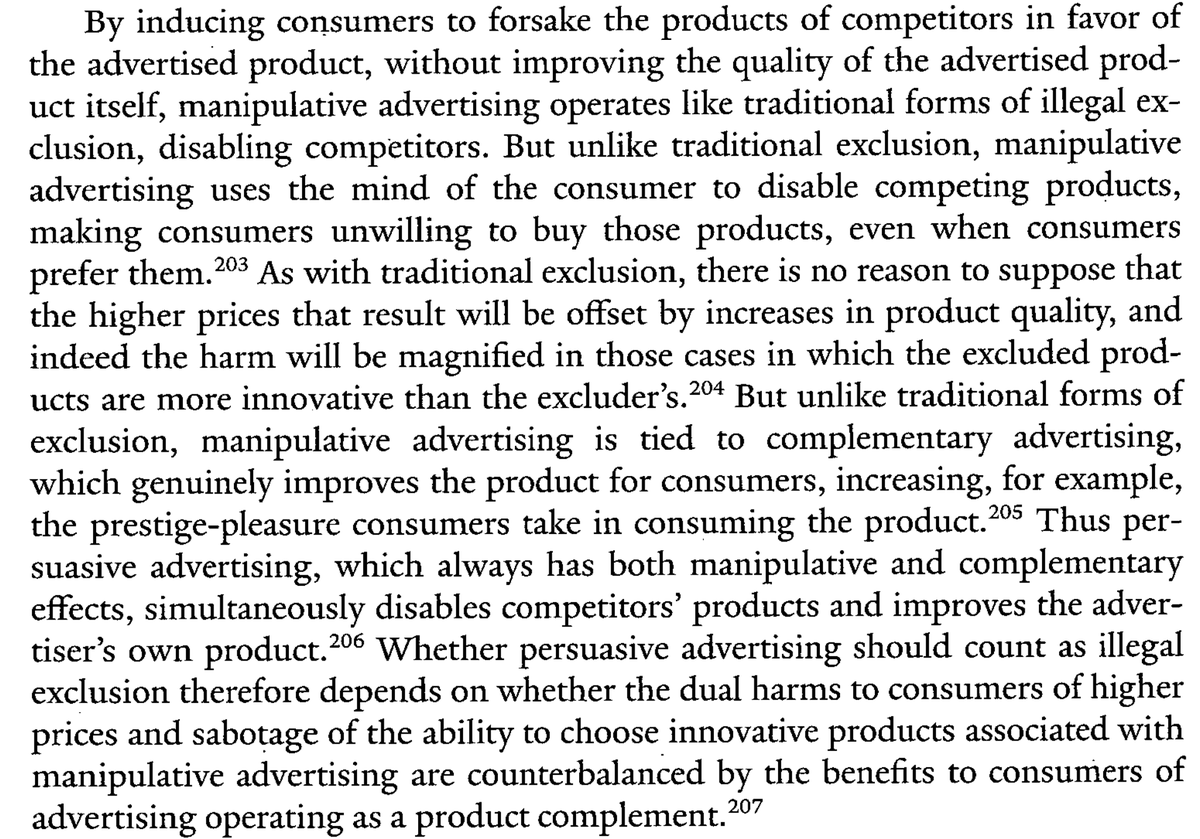
13/ I won't address the paper's underlying arguments (I think many of the claims esp. eg. involuntary neurological responses to advertising are unsubstantiated), but its interesting to assess these assertions through the lens of freemium digital products.
14/ One of the core contentions of the paper is that advertising stifles innovation because it gives advertisers advantages that arent related to product improvements (& therefore dont benefit consumers). But this ignores the role that advertising plays in product discovery
15/ The author hand-waves away the value of advertising as a discovery mechanic because people can search for (author's example): "the products I probably don't know
that I need."
that I need."

16/ That might be true for CPG products, the categories of which are fairly well defined. But this is impossible for freemium digital products, which can serve any imaginable use case. Imagine searching for "car ride share app that picks me up at home" in the early days of Uber
17/ Id argue that advertising *enables* innovation for digital products because it gives companies the ability to alert users to products in totally new and unique categories that are simply beyond the curiosity of the zeitgeist. Advertising facilitates new category *creation*.
18/ The author also takes a dim view of the ability of people to discern which products serve their best interests (versus which are top of mind because of ads). But freemium digital products are free to try: theres no switching cost, and people can "try before they buy"
19/ I can download a freemium app, assess its relevance to my use case / needs, and delete it at will, and the only cost incurred is of my time. Im not locked into a purchase commitment as a result of downloading an app after having seen an ad for a digital product.
20/ For this reason, brand is not a core consideration for most digital product advertisers. No "Santa drinking coke" analog exists for freemium digital products. Especially for mobile apps, brand equity really isnt an aspiration mobiledevmemo.com/brand-equity-o…
21/ In fact, the discovery function that advertising serves could arguably benefit competitors: if someone is alerted to the existence of a whole new product category because of an ad, and all products in that category are free -- why not try all of them? mobiledevmemo.com/why-paid-ua-is…
22/ The article doesnt substantively address ads personalization, which I believe to be a public good. In the freemium setting, purchases *can* be viewed as a valid proxy for preferences, and ads personalization optimizes for that
https://twitter.com/eric_seufert/status/1293646685764292616
23/ And digital advertising in freemium products is a two-sided marketplace: some of users' favorite apps are monetized exclusively with ads. Banning ads would adversely impact consumers who utilize these ads-monetized products.
24/ For these reasons, I think the anti-competitive argument against advertising is invalidated within the context of freemium digital products: advertising serves as a discovery mechanic & consumers can freely trial competing products because no switching costs exist
25/ End of thread. My MDM article next week is on the topic of demand creation, and I cut a segment for being tangential and not core to the point. I decided to post it as a tweet storm instead. Dont miss it! Subscribe: mobiledevmemo.com
• • •
Missing some Tweet in this thread? You can try to
force a refresh

















